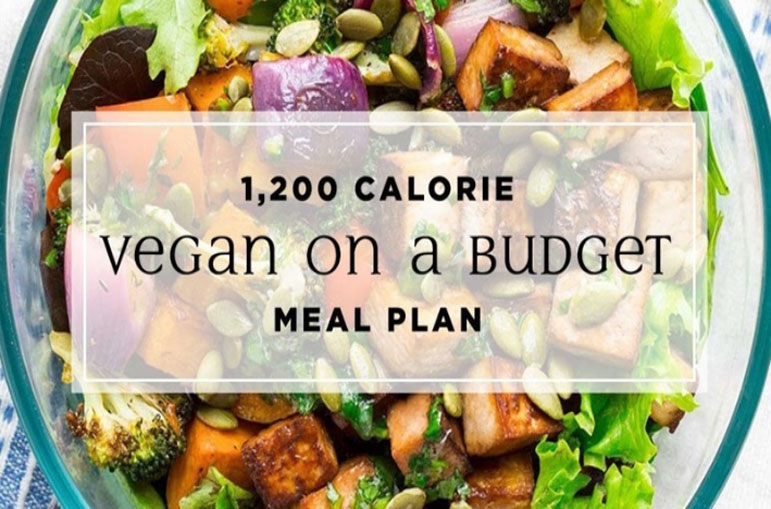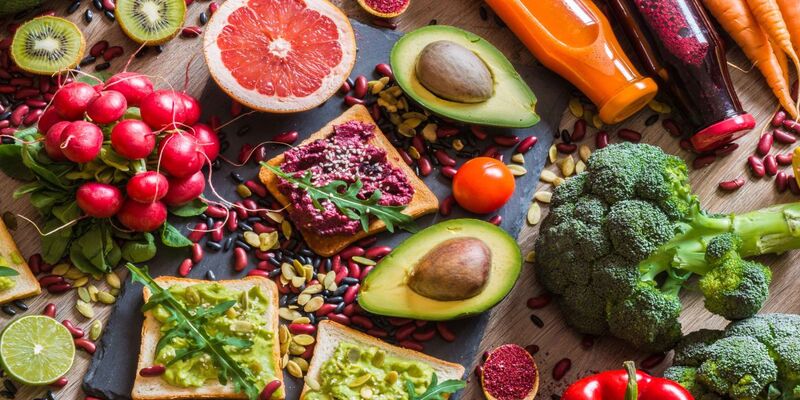A vegan diet is a type of plant-based diet that excludes all animal products and by-products, including meat, poultry, fish, dairy, eggs, and honey. This lifestyle choice is made for various reasons, including health, ethical, and environmental concerns. Proponents of a vegan diet believe that it can lead to several health benefits, including a lower risk of chronic diseases such as heart disease, type 2 diabetes, and some forms of cancer. Additionally, some people choose a vegan diet for ethical reasons, which involve reducing or eliminating animal exploitation and suffering.
A well-planned vegan diet can provide all the necessary nutrients for optimal health. Still, it's important to pay attention to essential nutrients typically derived from animal products, such as protein, vitamins B12 and D, calcium, and iron. It's also necessary to include a variety of foods in the diet to ensure that all nutrient needs are met. Fruits, vegetables, whole grains, legumes, nuts, and seeds are all essential components of a healthy vegan diet.
It's important to note that while a vegan diet can be healthy, it is not automatically so. Processed and junk foods, typically high in sugar, unhealthy fats, and salt, can still be included in a vegan diet, so it's essential to be mindful of food choices and choose nutrient-dense, whole foods whenever possible. Consulting a registered dietitian or healthcare provider can also help ensure a balanced and nutritious vegan diet.
Reasons For Adopting A Vegan Diet
There are several reasons why people choose to follow a vegan diet. Some of the most common causes include:
Ethical Concerns
For many people, treating animals in the food industry is a significant concern. Many vegans believe that animals should not be used or exploited for human benefit, and they choose to adopt a vegan diet to express their opposition to animal cruelty.
Environmental Benefits
The production of animal-based foods significantly impacts the environment, including deforestation, soil erosion, water pollution, and greenhouse gas emissions. By adopting a vegan diet, individuals can reduce their carbon footprint and help to protect the environment.
Health Benefits
Research has shown that a well-planned vegan diet can provide numerous health benefits, including a lower risk of heart disease, type 2 diabetes, and certain types of cancer. Vegan diets are also associated with lower cholesterol and blood pressure levels and a lower risk of obesity.
The Basics Of A Vegan Diet

A vegan diet typically consists of plant-based foods, including fruits, vegetables, whole grains, legumes, nuts, and seeds. To ensure that a vegan diet provides all the necessary nutrients, it is essential to choose a variety of foods and to plan meals carefully. Some of the critical components of a vegan diet include:
Fruits And Vegetables
These are the cornerstone of a vegan diet and should make up most of a person's daily food intake. Fruits and vegetables provide essential vitamins, minerals, and fiber, and they also contain antioxidants that help to protect against disease.
Whole Grains
Whole grains are a good source of complex carbohydrates, fiber, and essential nutrients, including B vitamins, iron, and zinc. Examples of whole grains include brown rice, quinoa, and whole-grain bread.
Legumes
Legumes, such as beans, lentils, and chickpeas, are an essential source of protein, fiber, and iron for vegans. They are also low in fat and rich in complex carbohydrates.
Nuts And Seeds
Nuts and seeds contain healthy fats, protein, and essential vitamins and minerals. Examples of nuts and seeds include almonds, chia seeds, and flaxseeds.
Plant-Based Kinds Of Milk
For those who choose to avoid dairy products, many alternative milk options are available, including soy milk, almond milk, and oat milk. These milk alternatives are often fortified with calcium and other essential nutrients.
Planning A Vegan Diet

Planning a vegan diet requires paying attention to the essential nutrients typically derived from animal products and finding plant-based sources to meet those needs. Here are some tips for planning a healthy and balanced vegan diet:
- Include a variety of foods: To ensure that a vegan diet provides all the necessary nutrients, it is essential to choose a variety of foods and plan meals carefully. This includes consuming various fruits, vegetables, whole grains, legumes, nuts, and seeds.
- Get enough protein: Protein is an essential nutrient for tissue growth, repair, and maintenance. Plant-based protein sources include legumes, soy products, nuts, and seeds. Combining different plant-based protein sources is also important to ensure adequate intake of all essential amino acids.
- Ensure adequate intake of vitamins B12 and D: Vitamin B12 is not naturally found in plant-based foods, so vegans need to include fortified foods or take a B12 supplement. Vitamin D can be obtained from fortified foods or exposure to sunlight.
- Consume enough calcium: Calcium is essential for strong bones and teeth. Good plant-based sources of calcium include fortified plant kinds of milk and juices, dark leafy greens, and tofu made with calcium sulfate.
- Get enough iron: Iron is necessary to transport oxygen in the blood. Plant-based sources of iron include legumes, tofu, dark leafy greens, and fortified cereals.
- Include healthy fats: Healthy fats are essential for overall health, including brain function and heart health. Good sources of healthy fats for vegans include avocados, nuts, and seeds.
- Plan meals and snacks: Planning can help ensure a vegan diet is balanced and nutritious. Packing snacks and planning meals can be helpful to ensure that all essential nutrients are included.
Conclusion
In conclusion, a vegan diet is a type of plant-based diet that excludes all animal products and by-products. This lifestyle choice is made for various reasons and can be a healthy way of eating when appropriately planned. By including a variety of fruits, vegetables, whole grains, legumes, nuts, and seeds and paying attention to essential nutrients typically found in animal products, a well-planned vegan diet can provide all the necessary nutrients for optimal health. Consulting a registered dietitian or healthcare provider can also help ensure a balanced and nutritious vegan diet.



